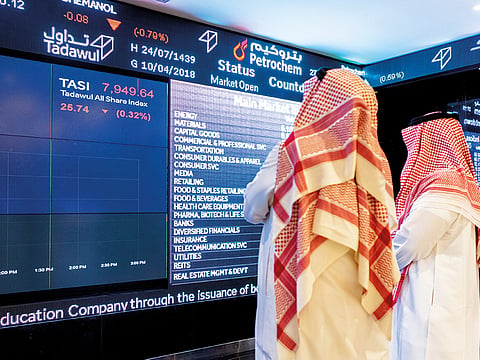Islamic bonds offer a sweet spot in dull market
Azimut, which runs the world’s second biggest sukuk fund, also plans partner with Al Mal Capital, Alfalah Investments for Mena and Pakistan funds

Dubai: Islamic bonds or popularly called as sukuk offers a sweet spot in an otherwise dull bond market, which many analysts think the 35-year old bull run will come to an end amid rising rates.
That’s because of its demand, supply and macro fundamentals, according to Giorgio Medda, Mena & Turkey Group Head at Azimut, which runs the world’s second biggest sukuk fund with assets under management now in excess of US $190 million, domiciled out of Luxembourg.
“Sukuk offers protection against rate rise. These instruments are normally issued at short maturities so the duration risk is very well contained,” Medda said, adding "the co-relation between sukuk prices and US interest rates is histrorically low and when interest rates increase the sukusk price does not suffer to the same extent. This is a sweet spot at the moment for the Middle East."
As far as demand and supply fundamentals go, sukuk supply is expected to be robust with expectations of excess demand from investors.
The fundamentals have been supportive. Oil prices hit more than $74 per barrel, their highest level in more than 3 years, still makes the reform process relevant.
“They won’t relinquish the earlier program of austerity, so the credit fundamentals are improving by the day. That will offer strong support to local fixed income,” Medda said.
“The spreads ie the difference between local yields and US treasury are still the highest since 2015, and back then oil prices were at $40 per barrel. These spreads will offer cushion for support and resilience in value,” Medda added.
And the returns have been attractive so far amid strong fundamentals. The Citi Sukuk Index yielded 4.31 per cent in 2017, compared to 3.54 per cent yields on BarCap US Aggregate Bond Index. Even the downside has been limited so far in the year.
The Citi Sukuk Index has so far yielded a negative 1.07 per cent compared to a negative yield of 1.78 per cent in the JP Morgan Emerging Markets Bond Index.
Weak market
Over and above the normal returns, Azimut offers a regular income to its sukuk investors.
“In this first quarter the market was down 2 per cent, however our fund is flat, but we will still distribute at the end of the quarter an income. Although the market has been a little weak, they will still get the cash that comes out from the different coupons that the funds receive,” Medda said.
The fund has about 90 different sukuk issuers in the portfolio, providing it the largest diversification for any sukuk fund. This is by far the largest diversification for a sukuk fund, the average diversification for a sukuk fund is 45. The GCC issuers form a 60 per cent of the overall portfolio.
“Sukuk is normally meant for institutional clients, but we offer the fund for a smaller ticket size and get highest possible diversification,” he added.
Azimut has also launched a project with Malaysian Maybank, the largest Islamic Bank in Asia, to market its sukuk fund. They plan to raise $50-100 million in South East Asia in a year.
Azimut is also teaming up with Al Mal Capital to widen the reach of its Mena equity fund. The plan is to shift the domicile of its existing fund to Luxembourg, approval is expected in May, in order to allow the European asset manager to distribute it globally.
“Now is the moment to invest in Mena. We think the momentum of reforms particularly out of Saudi Arabia is tremendous, and they are really addressing the concerns of global investors. They are making the right decisions to attract FDI. This will crystallise in GDP in coming years and will be one of attractive markets in emerging markets,” Medda said.
Tadawul index
The Tadawul index, which has gained 13 per cent so far in the year, has been the best performer regionally, dwarfing performance on the Dubai index, which shed 8.55 per cent since January 1.
Fund managers expect tens of billions of dollars to flow into the Tadawul index after the gauge formally gets included in the MSCI Emerging market index.
Azimut plans to raise $100 million in the Mena equity Fund.,. “It’s under regulatory approval in Luxembourg and we are hopeful of getting an approval in May,” Medda added.
The European asset manager is also bullish on Pakistani stocks ahead of elections and amid higher spending on infrastructure projects due to the new silk road initiative.
“About 70 per cent of the index EPS is expected to grow by 10 to 15 per cent. For a market trading at 40 per cent discount to any EM, is something that would appeal to global investors as it’s cheap,” Medda said.
That’s the reason why Azimut has partnered with Alfalah Investments for a Pakistan Equity Fund.
Sign up for the Daily Briefing
Get the latest news and updates straight to your inbox


